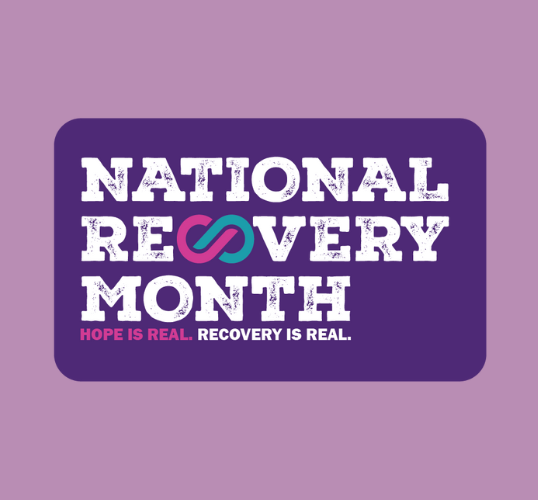Happy National Recovery Month, from the MA Substance Use Helpline!

National Recovery Month, started in 1989, is observed every September. It celebrates people in recovery and the strength of the recovery community and all who are part of it: families, friends, loved ones, caregivers, service providers, and more. Recovery Month also promotes and supports new evidence-based treatment and recovery practices.
Visit SAMHSA to find related Recovery Month information and events.
Find Recovery Month events across the state on the Massachusetts Organization for Addiction Recovery (MOAR) website.
About recovery
Recovery is about the whole person.
Recovery starts with hope. In recovery, people make changes over time that can help them feel better physically, mentally, emotionally, and spiritually. The changes they make help them live life on their own terms through their own choices, and work toward reaching their goals, whether small or large. Recovery isn’t only about substance use or mental health – it’s about the whole person. Learn more about SAMHSA’s definition of recovery.
Everyone deserves recovery resources that work for them.
Each person’s recovery journey is unique, and having recovery services and support that align with your values and needs is vital. At the Helpline, we know that recovery is for everyone, and we are dedicated to helping people find the right supports, tools, and resources. Call, text, or chat online with a Helpline Specialist to talk about finding the services that work for you.
If you’re a parent, guardian, or caregiver, you play an important role in supporting your loved one’s recovery. Having supportive connections can help young people balance recovery and their other responsibilities, like education. You can find treatment and recovery services that specifically support youth and young adults in Massachusetts. Learn more about Youth and Young Adult Services.
The recovery community is here for you.
No matter which services and resources you use, recovery is often most successful when you are supported by loved ones, social networks, and communities, including a community of your peers in recovery. When you connect with others who have similar experiences, you can share advice, give and get support, and open your life to new possibilities. Find Peer Recovery Support Centers, Recovery Learning Communities, or harm reduction spaces, all of which offer opportunities to join supportive communities. You can also hear from real people in recovery in Massachusetts in our Stories of Hope videos.
Families, caregivers, and loved ones often need their own support resources when supporting someone in recovery. Support groups, community coalitions, and advocacy groups are good options to find others who are or have been in similar situations. Search for family and loved ones support resources.
Take action in your community!
The Helpline Champions are an inspired group of individuals who support those living with substance use disorders by sharing information about harm reduction services, treatment services, and recovery support services. We welcome all people to join our Champions community. Helpline Champions include but are not limited to:
- People actively using alcohol and other drugs
- People in all types of recovery
- Providers and referrers
- Young adults
- Family members, friends, and loved ones
- Coalition members
- Recovery coaches
- Peer support specialists
- Retirees
- Faith leaders
Questions? Contact us to learn more about the Helpline Champions program.